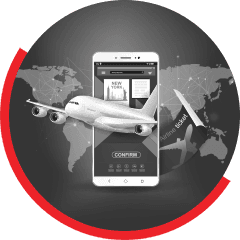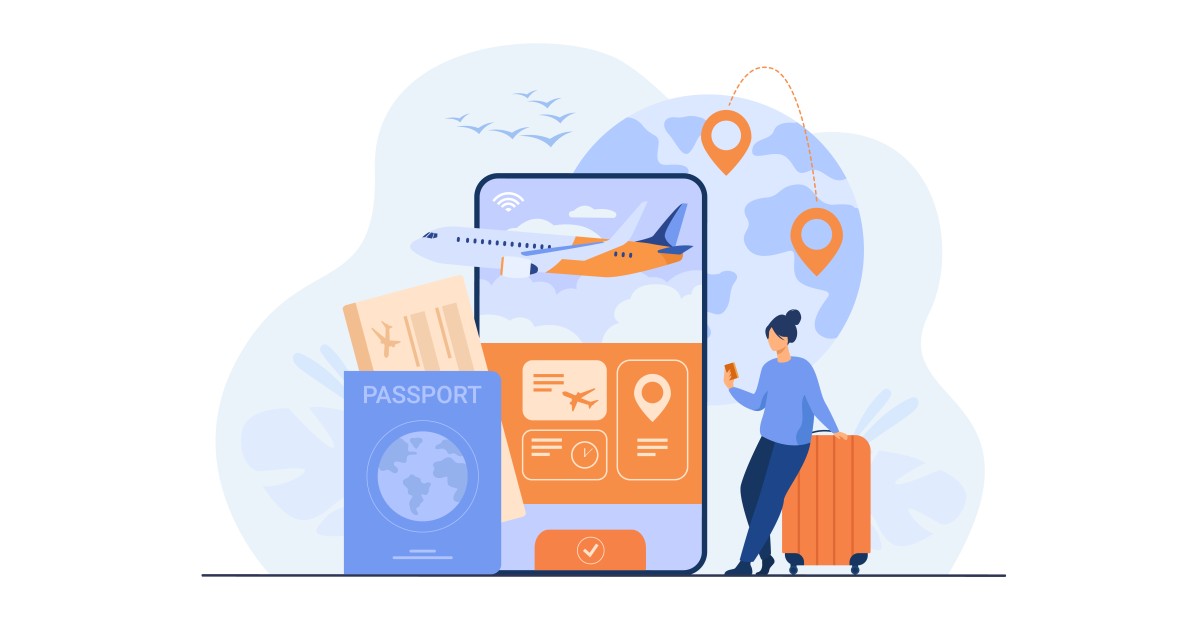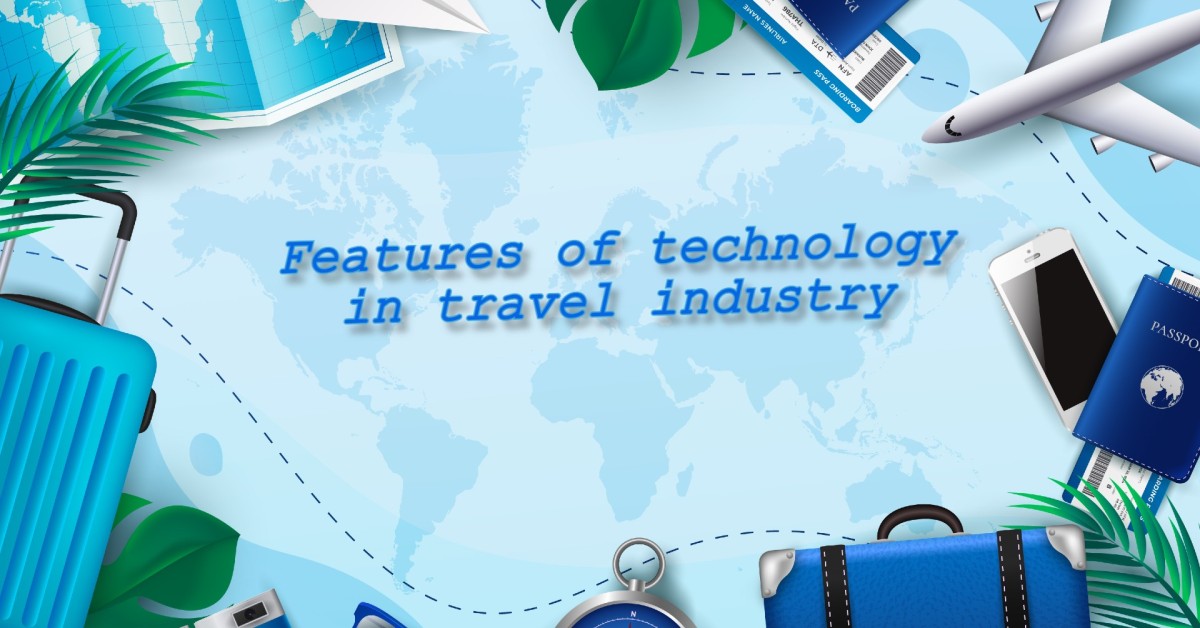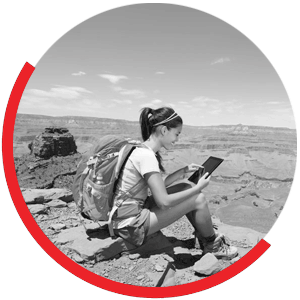Travel and tourism were entirely crippled because of the events of 2020. With the conclusion of the pandemic still a long way off, experts expect that the business will undergo significant changes.
The tourism industry has been the hardest hit by the COVID-19 pandemic. The figures are startling. In 2020, tourism locations had one billion fewer international visitors than they did in 2019. A sharp drop in international travel resulted in a loss of almost USD 1.3 trillion in export income, more than 11 times the loss seen during the previous economic downturn in 2009. A total of 100 to 120 million tourism jobs were jeopardized, the majority of which were in small and medium-sized businesses.
Tourist arrivals were expected to be 74 percent lower in 2020 than in 2019, according to the United Nations World Tourism Organization (UNWTO). The number of tourists visiting Spain fell by 77 percent in 2020, with only 19 million visitors - the lowest level since 1969.
This is a major source of concern for developing economies as they seek to recover. Tourism, which is supported by both the public and private sectors, is not only a key source of foreign money, but it also can reinforce supply chains, increase local company productivity, generate one out of every ten jobs, and provide income for women and young people. Tourism benefits local communities and how sustainable tourism generates economic value while protecting culture and natural resources.
Three clear steps emerged for Travel and Tourism to build better.
Tourism focused on consumer involvement
National Geographic reported in October 2020 that the epidemic had cost the travel and tourist business $8 trillion. As a result, the magazine advocated a number of significant reforms for the industry's future, all from the perspective of the visitor.
To begin with, the modern tourist is environmentally sensitive and prioritizes sustainability. Even the epidemic hasn't made this a worldwide issue go away, therefore visitors should be more mindful of environmental issues and seek out appropriate travel regulations. Lonely Planet noted the city of Valencia's aim to assess the carbon footprint left by tourism, while Engadget outlined the European Union's intention to collect and classify carbon emissions from aircraft as an example of such measures.
Clients seek out firms and brands that represent and fit with their own values, as large corporations have long known. As a result, following COVID-19, we're sure to witness more inclusive excursions — yet another proof that even the pandemic can't fix society's major problems. In this situation, we're talking about human rights advocacy social movements. Guided tours in American museums, for example, speak of "difficult historical themes, such as racism in the United States," according to National Geographic.
Another act of conscience is to place greater emphasis on smaller communities. Local tourism has been emphasized in this regard in Spain, particularly in the "Empty Spain" districts. Impact Travel Alliance is another example of a non-profit company that works to change the world through sustainable tourism while simultaneously supporting local businesses.
Tourism for forward-looking consumers
In general, the type of traveler that emerges in the post-COVID world will be more conscious of not only the environment, but also of their own travel habits. We're talking about quality above quantity in this case: We've had to reconsider how and why we wish to travel as a result of the pandemic. Journeys will be better prepared in the future, especially long-distance travel, and will be made less frequently. Travel experts mentioned post-pandemic travel obstacles in its March 2020 projections, including a (potential) need to hold multiple passports, more expensive travel seasons, and greater airport restrictions.
This is one of the reasons why road trips are regaining popularity: despite the fact that flights are becoming more affordable and potential locations are becoming further remote, national travel limitations have reignited the attractiveness of road journeys to places that aren't as far away. And we keep being closer to home in mind when on those road excursions. According to Euronews, following the lockdown, there will be a need to flee, but keeping closer to home, because the current situation has made us more wary.
Finally, according to National Geographic, travel consultants have become indispensable: Travel agents and tour operators are recovering confidence as a result of their business knowledge and connections, which ultimately justify the commissions they are paid. Despite this, we will once again take great joy in organizing vacations, with the hope of resuming our lives as they were before the coronavirus.
Tourism for the industry in transformation
Every day, we hear about a potential "COVID passport," or health passport, that would allow vaccinated people to travel freely. In Europe, no consensus has yet been reached on how such a certificate should be established, whereas in China, this project has already begun to revitalize tourism and combat the pandemic.
We don't know if similar restrictions will be adopted in Western countries, but we do know that they are being examined. In four points, McKinsey & Company summarizes the changes:
•Using a tourist hub to improve public-private interfaces
•Experimenting with new funding methods
•Ensuring clear protocol communication
•Enabling digital and data transformation in the tourism industry
As with the digital transformation, all businesses are now scrambling to adapt to this new reality. This not only causes problems, but it also brings new challenges to the fore. For example, the emergence of startups that meet new needs, such as Bespoke, a mobile platform that provides travelers with pre-trip health and safety tips as well as real-time tracking of travel interruptions; and Sitata, a mobile platform that provides travelers with pre-trip health and safety tips as well as real-time tracking of travel disruptions.
According to Euronews, Europe is the most popular tourist destination in the world, accounting for 10% of the European Union's GDP and employing 2.4 million people. In conclusion, numerous attempts are being undertaken to save this large economy, including the Re-OPEN EU service, which is a website with a dedicated mobile app that "provides tourists and travellers with the information they need to be safe in the EU."
In tourism, technology has a variety of applications that influence customer and provider behavior. At this time, travel software development companies are focusing on providing and deploying advanced technologies to cope-up with changed travel need post-pandemic.
At Sonata Software, we offer Rezopia – Integrated Digital Platform for End-to-End Travel Management.
Rezopia, with a holistic travel management approach, helps travel and tour operators to enhance traveler experience, increase operational efficiencies and adapt quickly to dynamic business models. With an integrated offering that includes travel applications, omni-channel commerce, mobile touchpoints, and analytics, Rezopia balances a rich feature set with the operational flexibility that a travel business needs.
Rezopia travel platform can be adapted to rail operations, corporate travel, and airline holiday services.
To know more, click on the link: Rezopia













